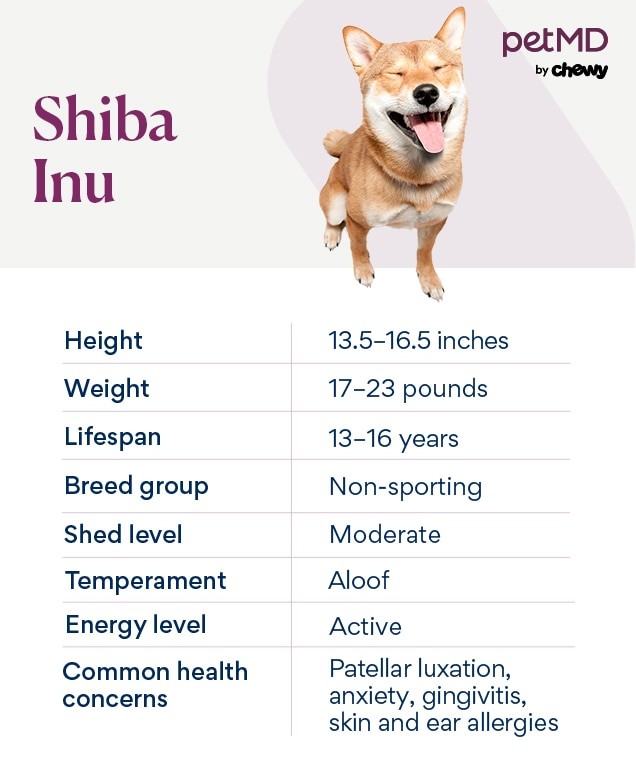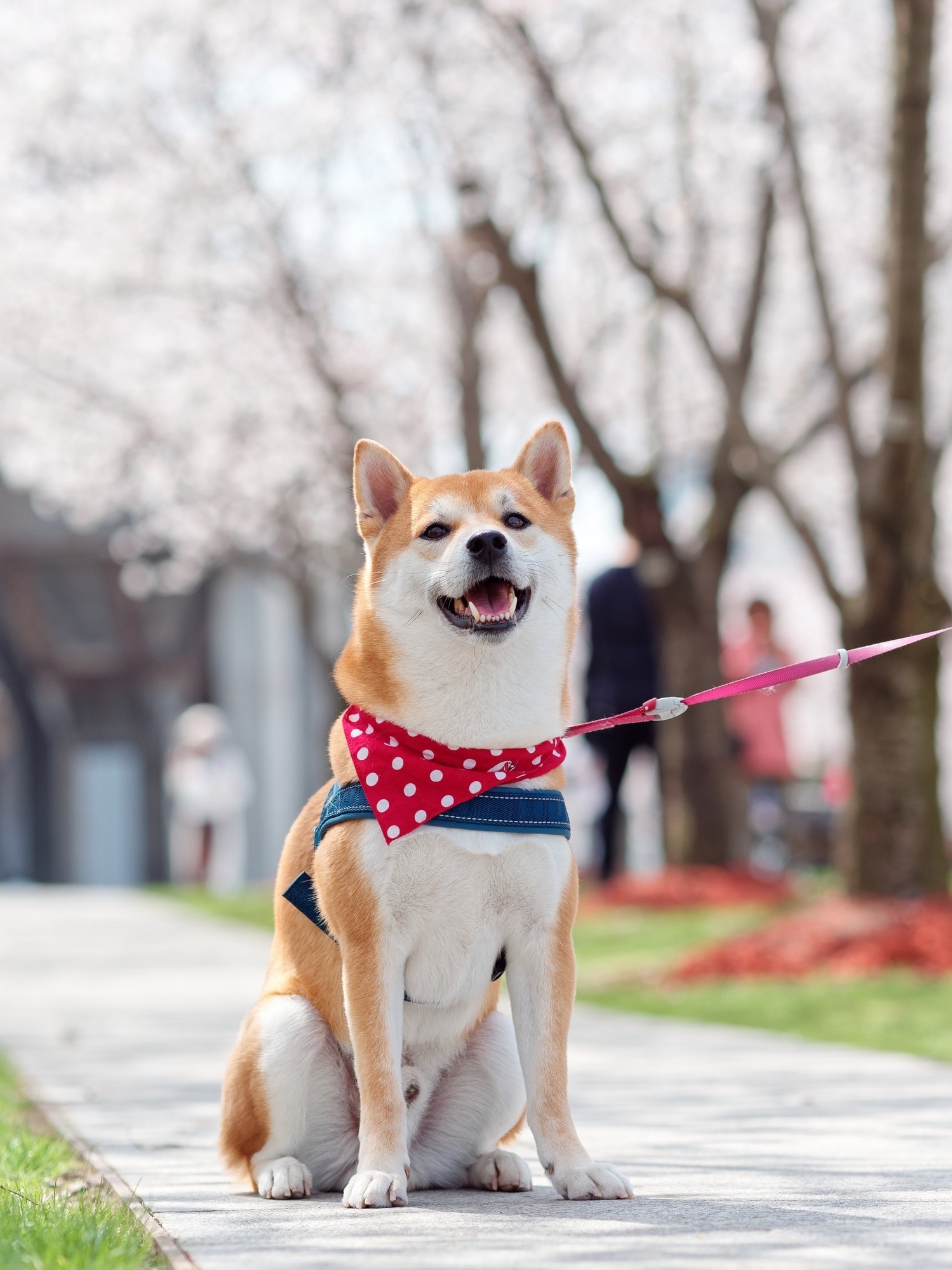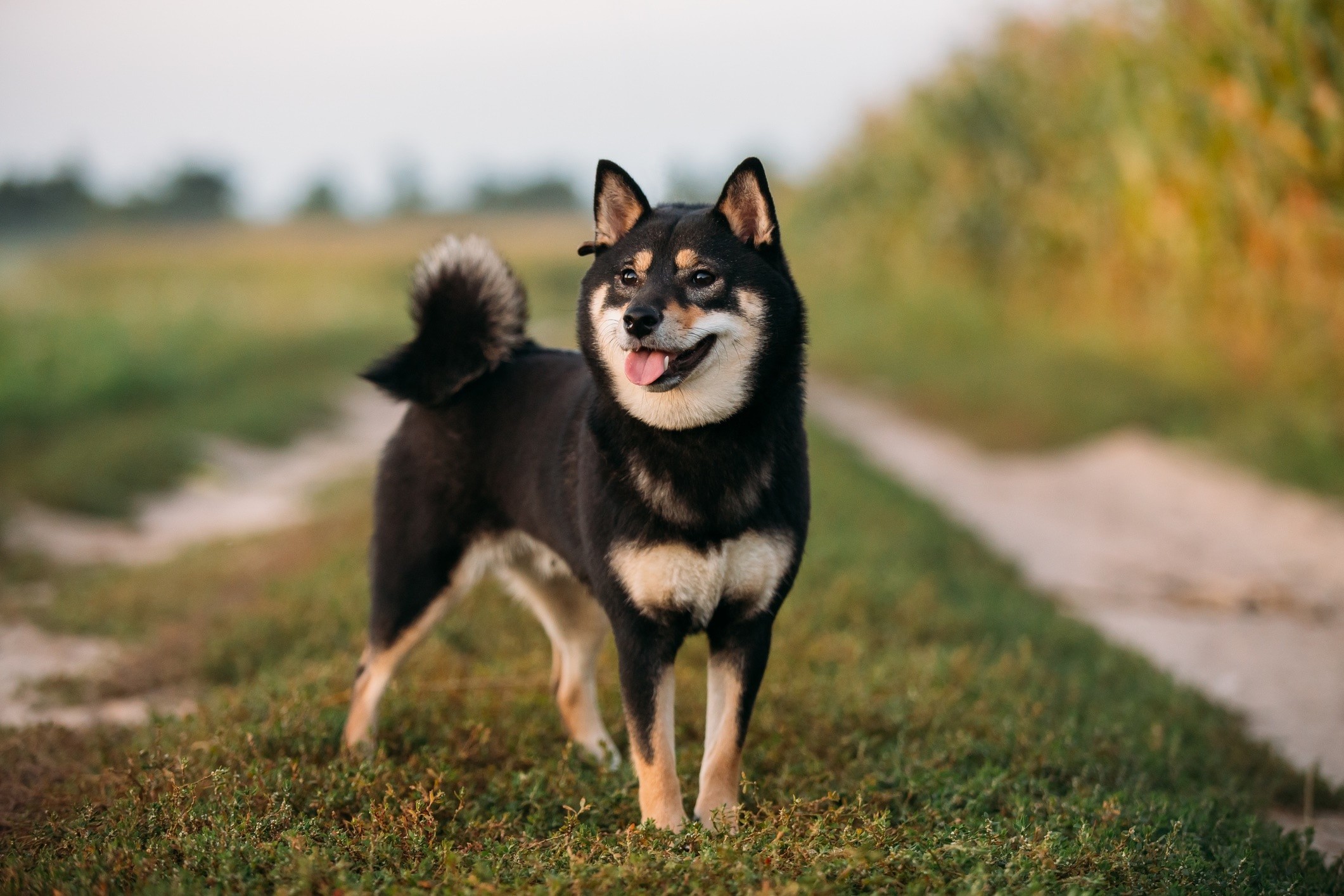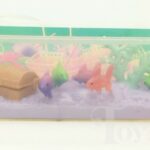Are Shiba Inu Good Pets? Absolutely. This comprehensive guide, brought to you by PETS.EDU.VN, explores the wonderful world of Shiba Inus, delving into their unique characteristics, care requirements, and potential health issues. Discover if this spirited breed is the perfect canine companion for you, and learn how to provide them with a fulfilling and joyful life. Let’s explore the joy of Shiba ownership, addressing their temperament, training needs, and potential health concerns, ensuring you’re well-prepared to welcome a Shiba Inu into your loving home.
1. Understanding the Shiba Inu Breed
The Shiba Inu, a breed originating from Japan, boasts a history of hunting small game and birds. Now, they are more commonly seen as beloved family pets. Understanding the breed’s history and temperament is crucial in determining if a Shiba Inu is the right fit for your lifestyle.
1.1. Historical Background
Originally bred for hunting in mountainous regions of Japan, the Shiba Inu possesses a strong prey drive and independent nature. This heritage influences their behavior and training needs.
1.2. Physical Characteristics
Shibas are known for their fox-like appearance, characterized by a compact build, erect ears, and a curled tail. They typically weigh between 17 and 23 pounds and come in various colors, including red, black and tan, and sesame. Their double coat requires regular grooming, especially during shedding season.
1.3. Temperament and Personality
Shiba Inus are intelligent, independent, and spirited dogs. They are known for their loyalty to their families but can be aloof with strangers. Early socialization is crucial to ensure they are well-adjusted and comfortable in various situations.
2. Is a Shiba Inu the Right Pet for You?
Deciding whether a Shiba Inu is the right pet involves carefully assessing your lifestyle, experience with dogs, and willingness to meet their specific needs. With their unique personalities and specific care requirements, understanding if you can provide a suitable environment is critical.
2.1. Activity Level and Exercise Needs
Shiba Inus are high-energy dogs that require daily exercise. Regular walks, playtime, and mental stimulation are essential to prevent boredom and destructive behaviors.
2.2. Training and Socialization
Training a Shiba Inu requires patience, consistency, and positive reinforcement. Their independent nature can make them challenging to train, but with the right approach, they can learn basic commands and manners. Early socialization is crucial to prevent aggression towards strangers and other animals.
2.3. Grooming Requirements
Their double coat requires regular brushing, especially during shedding season.
| Grooming Task | Frequency | Benefits |
|---|---|---|
| Brushing | 2-3 times/week | Reduces shedding, prevents matting, promotes healthy coat |
| Bathing | As needed | Cleanses coat, removes odors, soothes skin |
| Nail trimming | Monthly | Prevents overgrowth, maintains paw health |
| Teeth brushing | Daily | Prevents dental disease, promotes fresh breath |
| Ear cleaning | Weekly | Prevents ear infections, removes wax buildup |



2.4. Compatibility with Children and Other Pets
Shiba Inus can be good family pets if properly socialized. However, their independent nature may make them less tolerant of young children who don’t respect their boundaries. They can also be aggressive towards other dogs, especially those of the same sex.
3. Advantages of Owning a Shiba Inu
Owning a Shiba Inu can bring immense joy and companionship. These intelligent and loyal dogs offer numerous advantages to the right owner. From their striking appearance to their unique personalities, Shiba Inus are captivating pets.
3.1. Loyalty and Companionship
Shiba Inus form strong bonds with their families and are known for their loyalty and devotion. They enjoy spending time with their owners and can provide endless companionship.
3.2. Intelligence and Trainability
Shiba Inus are highly intelligent dogs that can learn quickly with the right training approach. Their intelligence makes them adept at learning tricks and participating in dog sports.
3.3. Cleanliness and Grooming Habits
Shiba Inus are naturally clean dogs and tend to groom themselves regularly. Their short coat requires minimal grooming, making them a relatively low-maintenance breed.
3.4. Alertness and Protective Instincts
Shiba Inus are alert and observant dogs that make excellent watchdogs. They are quick to bark at strangers and can be protective of their families and property.
4. Potential Challenges of Owning a Shiba Inu
While Shiba Inus offer many advantages, potential owners should also be aware of the challenges associated with this breed. Understanding these challenges can help you prepare and ensure you can provide the best possible care.
4.1. Independence and Stubbornness
Shiba Inus are known for their independent and stubborn nature, which can make training challenging. They require a patient and consistent owner who is willing to work with their unique personality.
4.2. Potential for Aggression
Some Shiba Inus can be aggressive towards strangers and other animals, especially those of the same sex. Early socialization and training are crucial to prevent aggression.
4.3. Tendency to Escape
Shiba Inus have a strong prey drive and a tendency to wander off in search of adventure. Secure fencing and careful supervision are essential to prevent escapes.
4.4. The “Shiba Scream”
Shiba Inus are known for their unique vocalization, often referred to as the “Shiba scream.” This high-pitched scream is typically used to express displeasure or frustration.
5. Health Issues Common in Shiba Inus
Shiba Inus are generally healthy dogs with a lifespan of 13-16 years. However, like all breeds, they are predisposed to certain health issues. Being aware of these potential health problems can help you provide the best possible care for your Shiba Inu.
5.1. Allergies
Shiba Inus are prone to environmental allergies, which can cause skin and ear infections. Regular bathing and ear cleaning can help manage allergies. Medications are also available to control allergic reactions.
5.2. Patellar Luxation
Patellar luxation is a condition in which the kneecap dislocates from its normal position. This can cause pain, lameness, and arthritis. Treatment options range from medication to surgery, depending on the severity of the condition.
5.3. Dental Disease
Shiba Inus are predisposed to dental disease, such as gingivitis and periodontal disease. Daily teeth brushing and regular dental cleanings are essential to prevent dental problems.
5.4. Progressive Retinal Atrophy (PRA)
PRA is a degenerative eye disease that can lead to blindness. There is no cure for PRA, but genetic testing can help identify affected dogs.
5.5. Glaucoma
Glaucoma is a condition in which pressure builds up inside the eye, damaging the optic nerve. Glaucoma can lead to blindness if left untreated.
5.6. Hip Dysplasia
Hip dysplasia is a genetic condition in which the hip joint does not develop properly. This can cause pain, lameness, and arthritis.
6. Caring for Your Shiba Inu
Providing proper care is essential to ensuring your Shiba Inu lives a long, healthy, and happy life. This includes nutrition, exercise, grooming, and regular veterinary care.
6.1. Nutritional Needs
Feed your Shiba Inu a high-quality dog food that is formulated for their age and activity level. Avoid overfeeding, as Shiba Inus are prone to obesity. Consult with your veterinarian to determine the best diet for your dog.
6.2. Exercise Requirements
Shiba Inus require daily exercise to stay physically and mentally healthy. Aim for at least 30-60 minutes of exercise per day, such as walks, runs, or playtime in the park.
6.3. Grooming Tips
Brush your Shiba Inu several times a week to remove loose hair and prevent matting. Bathe them as needed, typically every few months. Trim their nails regularly and brush their teeth daily.
6.4. Veterinary Care
Schedule regular checkups with your veterinarian to ensure your Shiba Inu is healthy. Vaccinations, parasite prevention, and dental care are essential for maintaining their well-being.
7. Training Your Shiba Inu
Training a Shiba Inu requires patience, consistency, and positive reinforcement. Start training early and focus on basic commands such as sit, stay, and come.
7.1. Positive Reinforcement Techniques
Use positive reinforcement techniques such as treats, praise, and toys to reward good behavior. Avoid punishment, as this can damage your relationship with your dog.
7.2. Socialization Strategies
Expose your Shiba Inu to a variety of people, places, and situations to help them become well-adjusted and confident. Enroll them in puppy classes or dog training groups to socialize with other dogs.
7.3. Addressing Common Behavioral Issues
Address any behavioral issues early on, such as excessive barking, digging, or chewing. Seek guidance from a professional dog trainer or behaviorist if needed.
8. Activities to Enjoy with Your Shiba Inu
Engaging in fun activities with your Shiba Inu is a great way to strengthen your bond and provide them with mental and physical stimulation. Here are some activities that Shiba Inus enjoy:
8.1. Scent Work
Shiba Inus have a keen sense of smell and enjoy scent work activities. Hide treats or toys and encourage them to find them using their nose.
8.2. Agility Training
Agility training is a fun and challenging activity that can help improve your Shiba Inu’s coordination and obedience.
8.3. Hiking and Outdoor Adventures
Shiba Inus are active dogs that enjoy hiking and exploring the outdoors. Take them on scenic walks or hikes in nature.
8.4. Puzzle Toys and Games
Puzzle toys and games are a great way to keep your Shiba Inu mentally stimulated. Choose toys that challenge their problem-solving skills.
9. Finding a Shiba Inu
If you’ve decided that a Shiba Inu is the right pet for you, there are several ways to find one. Consider adopting from a rescue organization or purchasing from a reputable breeder.
9.1. Rescue Organizations
Adopting a Shiba Inu from a rescue organization is a rewarding way to give a deserving dog a loving home. Search for Shiba Inu rescue organizations in your area.
9.2. Reputable Breeders
If you choose to purchase a Shiba Inu from a breeder, make sure they are reputable and ethical. Ask about their breeding practices, health testing, and socialization methods.
9.3. Questions to Ask Breeders
When talking to breeders, be sure to ask important questions about the puppies’ health history, temperament, and socialization. Ask to see the parents and the facilities where the puppies are raised.
10. Costs Associated with Owning a Shiba Inu
Owning a Shiba Inu involves various costs, including food, veterinary care, grooming, and supplies. Be prepared to budget for these expenses before bringing a Shiba Inu into your home.
10.1. Initial Costs
Initial costs include the purchase price of the puppy or adoption fee, as well as expenses for vaccinations, microchipping, and essential supplies.
10.2. Ongoing Expenses
Ongoing expenses include food, veterinary care, grooming, toys, and training classes.
10.3. Unexpected Costs
Be prepared for unexpected costs such as emergency veterinary care, medications, and repairs to your home or property.
11. Addressing Common Concerns About Shiba Inus
Potential Shiba Inu owners often have concerns about their independence, potential for aggression, and the “Shiba scream.” Understanding these concerns and how to address them can help you make an informed decision.
11.1. Managing Independence
Manage a Shiba Inu’s independence by providing them with plenty of mental and physical stimulation, as well as consistent training and socialization.
11.2. Preventing Aggression
Prevent aggression by starting socialization early and exposing them to a variety of people, places, and situations. Seek guidance from a professional dog trainer if needed.
11.3. Coping with the “Shiba Scream”
Cope with the “Shiba scream” by identifying the triggers and addressing them through training and behavior modification. Provide your Shiba Inu with a safe and comfortable environment.
12. Shiba Inu Breed Standard
The Shiba Inu breed standard describes the ideal characteristics of the breed, including physical appearance, temperament, and movement. Understanding the breed standard can help you appreciate the unique qualities of the Shiba Inu.
12.1. Appearance
Shiba Inus are small, compact dogs with a fox-like appearance. They have erect ears, a curled tail, and a double coat that comes in various colors.
12.2. Temperament
Shiba Inus are alert, intelligent, and independent dogs. They are loyal to their families but can be aloof with strangers.
12.3. Movement
Shiba Inus have a light and agile gait. Their movement is free and effortless.
13. Debunking Myths About Shiba Inus
There are several myths and misconceptions surrounding the Shiba Inu breed. Debunking these myths can help potential owners make informed decisions.
13.1. Myth: Shiba Inus are Untrainable
While Shiba Inus can be independent and stubborn, they are intelligent dogs that can be trained with patience, consistency, and positive reinforcement.
13.2. Myth: Shiba Inus are Always Aggressive
Shiba Inus are not inherently aggressive, but they can be territorial and protective. Early socialization and training can help prevent aggression.
13.3. Myth: Shiba Inus are Not Good with Children
Shiba Inus can be good family pets if properly socialized and trained. However, they may not be suitable for very young children who don’t respect their boundaries.
14. Real-Life Experiences of Shiba Inu Owners
Hearing from real-life Shiba Inu owners can provide valuable insights into the joys and challenges of owning this unique breed.
14.1. Positive Experiences
Shiba Inu owners often describe their dogs as loyal, intelligent, and entertaining companions. They appreciate their cleanliness, alertness, and playful nature.
14.2. Challenges Faced
Some Shiba Inu owners report challenges with training, socialization, and aggression. They emphasize the importance of patience, consistency, and professional guidance.
14.3. Tips and Advice
Shiba Inu owners offer tips and advice on training, socialization, grooming, and health care. They encourage potential owners to do their research and be prepared to meet the breed’s specific needs.
15. The Future of Shiba Inus as Pets
The Shiba Inu breed continues to grow in popularity as more people discover their unique qualities and characteristics. Understanding the future trends and challenges facing the breed is essential for responsible ownership.
15.1. Increasing Popularity
The Shiba Inu breed has experienced a surge in popularity in recent years, thanks to their adorable appearance and unique personality.
15.2. Responsible Breeding Practices
Responsible breeding practices are essential to maintaining the health and temperament of the Shiba Inu breed. Breeders should prioritize health testing, socialization, and ethical breeding practices.
15.3. Educating Potential Owners
Educating potential owners about the Shiba Inu breed is crucial to ensuring responsible ownership. Potential owners should be aware of the breed’s specific needs and challenges.
16. Resources for Shiba Inu Owners
There are numerous resources available for Shiba Inu owners, including websites, books, and organizations dedicated to the breed.
16.1. Websites and Online Forums
Websites and online forums provide valuable information and support for Shiba Inu owners. Share experiences, ask questions, and connect with other Shiba Inu enthusiasts.
16.2. Books and Guides
Books and guides offer comprehensive information on Shiba Inu care, training, and health. Choose resources that are written by reputable experts.
16.3. Breed-Specific Organizations
Breed-specific organizations provide resources, events, and support for Shiba Inu owners. Join a local or national Shiba Inu club to connect with other enthusiasts.
17. Expert Opinions on Shiba Inus
Hearing from experts in the field of canine behavior and training can provide valuable insights into the Shiba Inu breed.
17.1. Veterinarian Insights
Veterinarians offer valuable insights into the health and care of Shiba Inus. Consult with your veterinarian about vaccinations, parasite prevention, and dental care.
17.2. Dog Trainer Perspectives
Dog trainers provide guidance on training, socialization, and behavior modification. Seek help from a professional dog trainer if you are struggling with any behavioral issues.
17.3. Breed Expert Advice
Breed experts offer valuable advice on selecting, caring for, and training Shiba Inus. Consult with a breed expert to learn more about the breed’s unique qualities and characteristics.
18. Legal Considerations for Owning a Shiba Inu
Before bringing a Shiba Inu into your home, be aware of any legal considerations, such as breed-specific legislation or leash laws.
18.1. Breed-Specific Legislation
Some cities or counties have breed-specific legislation that restricts or prohibits certain breeds. Check your local laws to ensure Shiba Inus are permitted in your area.
18.2. Leash Laws
Leash laws require dogs to be leashed in public areas. Be aware of leash laws in your area and comply with them to avoid fines or penalties.
18.3. Homeowners Insurance
Some homeowners insurance policies restrict or exclude certain breeds. Check your policy to ensure your Shiba Inu is covered.
19. The Emotional Bond with a Shiba Inu
The emotional bond with a Shiba Inu can be incredibly rewarding. These loyal and intelligent dogs can provide endless companionship and joy.
19.1. Companionship and Support
Shiba Inus offer companionship and support during challenging times. Their presence can help reduce stress and anxiety.
19.2. Reducing Stress and Anxiety
Studies have shown that owning a dog can reduce stress and anxiety. Spending time with your Shiba Inu can help you relax and unwind.
19.3. Improving Mental Well-being
Owning a Shiba Inu can improve your mental well-being. Their playful nature and unconditional love can bring joy and happiness to your life.
20. Making the Final Decision: Is a Shiba Inu Right for You?
Deciding whether a Shiba Inu is the right pet for you is a personal decision. Consider your lifestyle, experience with dogs, and willingness to meet the breed’s specific needs.
20.1. Reconsidering Your Lifestyle
Reflect on your lifestyle and determine if you can provide a Shiba Inu with the attention, exercise, and training they need.
20.2. Evaluating Your Experience
Evaluate your experience with dogs and determine if you have the skills and knowledge to handle a Shiba Inu’s unique personality.
20.3. Seeking Advice from Professionals
Seek advice from veterinarians, dog trainers, and breed experts to help you make an informed decision.
By carefully considering these factors, you can determine if a Shiba Inu is the right pet for you and prepare to provide them with a loving and fulfilling home. Remember, PETS.EDU.VN is here to support you every step of the way, offering valuable resources and information to help you care for your furry friend.
FAQ About Shiba Inus
Here are some frequently asked questions about Shiba Inus:
1. Are Shiba Inus good with children?
Shiba Inus can be good with older children who understand how to interact with dogs respectfully. Early socialization is crucial.
2. Do Shiba Inus bark a lot?
Shiba Inus are not excessive barkers, but they are known for their “Shiba scream,” a high-pitched vocalization used to express displeasure.
3. How much exercise do Shiba Inus need?
Shiba Inus need at least 30-60 minutes of exercise per day, including walks, runs, and playtime.
4. Are Shiba Inus easy to train?
Shiba Inus can be challenging to train due to their independent nature. Patience, consistency, and positive reinforcement are essential.
5. What is the average lifespan of a Shiba Inu?
The average lifespan of a Shiba Inu is 13-16 years.
6. Do Shiba Inus shed a lot?
Shiba Inus have a double coat and shed moderately year-round, with heavier shedding during seasonal changes.
7. Are Shiba Inus good apartment dogs?
Shiba Inus can adapt to apartment living if their exercise needs are met. However, their vocalizations may be a concern for neighbors.
8. What are common health issues in Shiba Inus?
Common health issues in Shiba Inus include allergies, patellar luxation, dental disease, and progressive retinal atrophy (PRA).
9. How much does a Shiba Inu puppy cost?
The cost of a Shiba Inu puppy typically ranges from $1,000 to $3,000, depending on the breeder and location.
10. Where can I find a Shiba Inu rescue organization?
You can find Shiba Inu rescue organizations by searching online or contacting your local animal shelter.
Adopting a pet like Shiba Inu requires dedication and care, but the rewards are immeasurable. At PETS.EDU.VN, we provide you with all the information and resources needed to make responsible pet ownership decisions. From breed-specific guides to expert advice on nutrition and training, we’re committed to supporting you every step of the way.
Ready to Welcome a Shiba Inu?
If you’re considering adding a Shiba Inu to your family, we encourage you to explore the wealth of information available at PETS.EDU.VN. Learn more about their specific care needs, find reputable breeders or rescue organizations, and connect with a community of passionate Shiba Inu owners.
Explore PETS.EDU.VN for More Information
Visit PETS.EDU.VN to access in-depth articles, expert advice, and helpful resources for Shiba Inu owners.
Find Local Services and Support
Looking for a trusted veterinarian, groomer, or dog trainer in your area? PETS.EDU.VN can help you find local services and support for your Shiba Inu.
Contact Us for Personalized Guidance
Have questions or need personalized guidance on Shiba Inu care? Contact us at PETS.EDU.VN. Our team of experts is here to help you provide the best possible life for your furry friend.
Contact Information:
- Address: 789 Paw Lane, Petville, CA 91234, United States
- WhatsApp: +1 555-987-6543
- Website: PETS.EDU.VN
At PETS.EDU.VN, we understand the joys and challenges of pet ownership. Our goal is to empower you with the knowledge and resources you need to provide a happy, healthy, and fulfilling life for your beloved Shiba Inu.
Conclusion: Embracing the Shiba Inu Lifestyle
Owning a Shiba Inu is a unique and rewarding experience. These intelligent, loyal, and spirited dogs can bring endless joy to your life. By understanding their specific needs, providing proper care, and embracing their independent nature, you can forge a strong and lasting bond with your Shiba Inu companion. Remember to visit PETS.EDU.VN for all your pet care needs, ensuring your Shiba Inu lives a happy and healthy life. With the right approach, a Shiba Inu can be a wonderful addition to your family, bringing love, laughter, and companionship for years to come. At pets.edu.vn, we’re dedicated to helping you every step of the way, ensuring a harmonious and fulfilling relationship with your furry friend.
